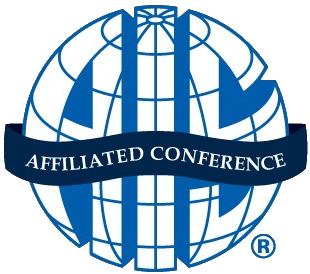16: Methods, Tools and Human Factors in IS/IT Management
Track Description
Affiliation with BISE Journal
The track is affiliated with the prestigious BISE Journal. Outstanding papers submitted to the track will be given an opportunity (via fast track) to publish an extended version in the special issue "The Networked Society" (BISE Issue 3/2016).
Theme
Information technology and information systems (IT/IS) management and governance is a complex phenomenon. IT/IS management and governance typically involve individuals or groups from various cultures, educational / professional backgrounds, and organizations who work together using various methods (or methodologies/ frameworks) and tools to ensure that the final product will meet the expectations of all stakeholders. They also raise sophisticated problems in terms of value creation, alignment with enterprise strategy and evaluation of return on investment. In order to better understand the intricate problems that can arise in such a complex and dynamic work environment, this track adopts a multi-dimensional approach focusing on both user-centric, as well as, method-centric aspects:
Human factors in IS/IT Management: understanding the large variety of human factors that need to be considered during IS/IT Management. Issues such as (but not limited to) lack of proper communication and coordination among team members, task management in a distributed setting, cultural differences etc. This topic also deals with human issues related to IS/IT management in specific project and organizational environments. For example, customer collaboration is important in an agile context, while developer coordination and communication is critical in a globally distributed IS/IT environment.
Methods and Tools for IS/IT Management: understanding and explaining the design, adoption, and success of methods (or methodologies/ frameworks) and tools from areas such as (and not limited to) project management, software engineering, method engineering, architecture management, service management, and IS/IT governance. The goal is to foster research by providing deeper insights into factors that affect their successful design, dissemination, and application.
Researchers and practitioners interested in submitting papers to this track are encouraged to explore IT/IS management issues related to the above mentioned themes – for example, from a design, behavioral, and technological perspective. Papers may consider different units of analysis: individual, group, or organizational level.
Types of Contributions
Topics of interest include, but are not limited to:
- Socio-technical approach to IS/IT management and governance
- Coordination, communication and collaboration issues in IS/IT management and governance
- Organizational and governmental issues in IS/IT management and governance
- Management and governance issues in IT/IS strategy alignment
- Methods and tools for IS/IT project management
- Issues relevant to IS/IT Project Management, Project Portfolio Management, and Program Management
- Management issues in eliciting and validating project requirements
- Knowledge management issues in IT project management
- Management and governance issues in Enterprise Systems (e.g. ERP) and other packaged software applications
- Cloud computing and IS/IT management and governance
- Management of security and privacy issues in cloud computing
- Software and tools that support effective IS/IT management and governance
- IS/IT and enterprise strategy alignment: definition, measurement and monitoring
- Communities of interest, communities of practice, knowledge sharing and organizational learning in IS/IT management
- Issues particular to global IS/IT management (e.g. outsourcing)
- Methods and tools for IT/IS quality management and assurance
- Issues related to Open Source Software management
- Design, configuration and customization of IT/IS management methods and tools
- Empirical studies in method design and engineering: experiences, case studies and usage-oriented evaluations
- Data mining and big data approaches to IS/IT method understanding and optimization
- Standardization and normalization issues for IS/IT methods and tools
- Issues related to computer-based support to IS/IT methods
- IS/IT method and tool acceptance and adoption
- Strategies to improve IS/IT methods acceptance
- Leadership, power, and politics in IS/IT management
This track seeks high-quality design, behavioral, and technical research that attempts to advance theory and the application of methodologies, methods, and tools, using a variety of research approaches (action research, experimental, grounded theory, design science, case studies, survey research, theory development, prototyping, methodology development, etc.).
We welcome full research papers, research in progress, and/or teaching cases.
Track Chairs
Kunal Mohan <primary contact>

Kunal Mohan is a Postdoc researcher (Habilitation) at the University of Duisburg-Essen, Germany. Kunal is also working as a Senior Consultant at a global management consultancy firm focusing on Project Management, IT Compliance and Governance, and IT Audit. He received his Ph.D. from the University of Lausanne, Switzerland. Furthermore, he holds a Master’s degree in information systems from the University of Augsburg, Germany and a MBA degree from the University of Dayton, USA. In 2011, he stayed at the University of South Florida as Visiting Scholar. Kunal Mohan has been working in the fields of IT Assurance and Project Management for several years. In his current research, he focuses on IT Project Management, Benefits Management, Stress, and Behavioural Science. He has authored/co-authored several scientific publications in the fields of benefits management, and IT artifact acceptance, and use.
Kunal Mohan was track chair at ECIS 2011, and 2012, mini-track chair at AMCIS 2012, member of program committee at Multikonferenz Wirtschaftsinformatik (MKWI) 2012, and has served as a reviewer for several publication outlets.
Said Assar

Saïd Assar holds MSc and PhD degrees in Computer Science from Pierre & Marie Curie University, Paris. He is an Associate Professor of Information Systems at Institut Mines-Telecom, Ecole de Management, and is associate researcher at CRI Research Lab, Sorbonne University, Paris, France. In 2012, he was a visiting scholar at Lund University, Sweden, with the Software Engineering Research Group (SERG). His research interests include IS modeling, method and tools for IS development, service-orientation in IS, empirical software engineering, e-learning and e-government applications. His work has been published in various national and international workshops and conferences (e.g. BPMDS, INFORSID, COMPSAC, ICSOFT, RCIS). He has co-edited two books and took part in organizing many international scientific events (IFIP WG8.1 EISIC'02, AIM'04, RE'05, pre-ICIS’06, ICIS'08). Saïd Assar serves regularly on program committees for national and international workshops and conferences (IADIS, AIM, INFORSID, RCIS, ECIS), he was track co-chair at ECIS’13 and is on the Editorial Board for Information Technology for Development Journal and Int. Journal of Social and Organizational Dynamics in IT.
Chinatn Amrit

Chintan Amrit is an Assistant Professor at the department of Industrial Engineering and Business Information Systems, School of Management and Governance at the University of Twente. He has completed his PhD from the same department in the area of Coordination in Software Development, having started it at RSM Erasmus University. He holds a master’s degree in Computer Science from Indian Institute of Science, Bangalore. In the past he has worked for a period of three years as a software engineer for SoftPro in Boeblingen, Germany. His research interests are in the area of business intelligence (using machine learning), open source development and mining software repositories. He has been a finalist of the Surfnet Big Data Challenge 2013 in the Netherlands. His work has been accepted in venues such as Journal of Information Technology, Information Systems Management, Journal of Systems and Software, Journal of Organizational and End User Computing and ACM Journal of Data and Information Quality. He is one of the guest editors of a forthcoming special issue of the Information and Software Technology journal and a track co-chair at ECIS 2013.
Maya Daneva

Maya Daneva is an Assistant Professor with the Information Systems group at the University of Twente, the Netherlands, where she leads a research program on empirical studies in large scale requirements engineering and systems development. She serves as the empirical research liaison to the Dutch IT industry and is actively involved in carrying out case studies, focus groups, and action research on stakeholder coordination and client-developer collaboration phenomena in requirements engineering in a variety of settings ranging from agile small projects to large ERP implementations. Prior to this, Maya spent 8 years as a business process analyst in the Architecture Group of TELUS Corporation in Toronto, Canada's second largest telecommunication company, where she consulted on ERP requirements and early estimation of large projects. Maya is the author of more than 70 empirical research papers published in journals and in conference proceedings. She was two times a nominee for best paper award at the annual International Conference on Requirements Engineering, the premium meeting point of the RE community. In 2013, Maya co-organized the ECIS’13 Track on ‘Methods, Tools and Human Factors in IS/IT Development and Management’. Since 2006, Maya has been serving as the co-organizer of seven workshops co-located with the IEEE RE conference, CAiSE, and the IEEE/ACM Symposium on Empirical Software Engineering: the International Workshop on Creativity in Requirements Engineering (CREARE, 2012), the International Workshop Empirical Requirements Engineering (EMPIRE, 2011, 2012, 2013, and 2014), and the Panel Discussion on the Interplay of Requirements Engineering and Project Management (2006).
Associate Editors
- Frederik Ahlemann, University of Duisburg-Essen
- Mehmet Aydin, Isik University
- Jeff Baker, American University of Sharjah
- Venugopal Balijepally, Oakland University
- Reza Barkhi, Virginia Tech
- Matthijs den Besten, Montpellier Business School
- João Alvaro Carvalho, Universidade do Minho
- Samira Si-Saïd Cherfi, CNAM
- Alina Dulipovici, HEC Montréal
- Abhijit Dutt, Penn State Beaver
- Erwin Folmer, TNO
- Jenson Chong-Leng Goh, SIM University
- César González-Pérez, Spanish National Research Council
- Uwe Hoppe, University of Osnabrück
- Charlotte Hug, University Paris 1 - Sorbonne
- Manfred Jeusfeld, Tilburg University
- Jahangir Karimi, University of Colorado Denver
- Mark Keith, Brigham Young University
- Elena Kornyshova, CNAM
- Satish Krishnan, IIM Kozhikode
- Alexander Maedche, University of Mannheim
- Darren Meister, Western University
- Vishal Midha, The University of Texas-Pan American
- Roland Mueller, Berlin School of Economics
- N Bhanu Murthy, Bits Pilani Hyderabad
- Salman Nazir, West Virginia University
- Shan L Pan, The University of New South Wales
- Jolita Ralyté, University of Geneva
- Raghu Reddy, IIIT Hyderabad
- Rajeev Sharma, University of Wollongong
- Shadi Shuraida, Baruch College
- Jonas Sjöström, Uppsala University
- Sandra A. Slaughter, Georgia Institute of Technology
- Ashish Sureka, Indraprastha Institute of Information Technology
- Frank Teuteberg, University of Osnabrück
- Rahul Thakurta, Xavier Institute of Management
- Gitte Tjornehoj, Aalborg University
- Gianluigi Viscusi, EPFL
Additional Information
Coverage in other Conferences
The design, adoption, and success of IT/IS management and development practices and the role that people play in it is a popular IS research topic (especially in project management), and has received considerable attention as an individual track at many academic conferences on Information Systems (e.g., ICIS, ECIS, AMCIS, PACIS, HICSS). Kunal Mohan served as chair of the “IT/IS Management and Development Methodologies” track at the European Conference on Information Systems (ECIS) in 2011, and 2012 and “Adoption, Diffusion, and Success of IT Project Management Methodologies“ mini-track at the17th Americas Conference on Information Systems (AMCIS) 2012 in Seattle. This very same team (Kunal Mohan, Saïd Assar, Chintan Amrit along with the same track co-chairs) had a similar track at ECIS 2013 that received 58 paper submissions, making it one of the biggest tracks and highlighting the interest and relevance of the topic.
This track represents a continuation of the topics as addressed in project management, software development, and organizational learning tracks at previous ECIS conferences. In the previous instances of this track, the large number of submissions has proven the topic’s popularity. In addition, over the past decade, IT/IS management and development issues have demonstrated a high level of theoretical, as well as practical, interest at international conferences.
The track will be advertised through a number of media outlets, such as newsletters (e.g., AISWorld mailing list), social media, national and international networks as well as personal and university-level networks. We will specifically address academics, and doctoral students. However, since the topic is also of great interest to practitioners (especially project management), we will advertise in several partner multinational organizations. Additionally, a call for submissions will be published in a number of practitioner-oriented magazines through our existing contacts in the industry. Since the track chairs and AE’s meet regularly at international events and have already planned to participate in upcoming academic conferences (e.g., ICIS 2015, HCISS 2015, AMCIS 2015, PACIS 2015, etc.), a single-page brochure will be distributed to the conference participants.


